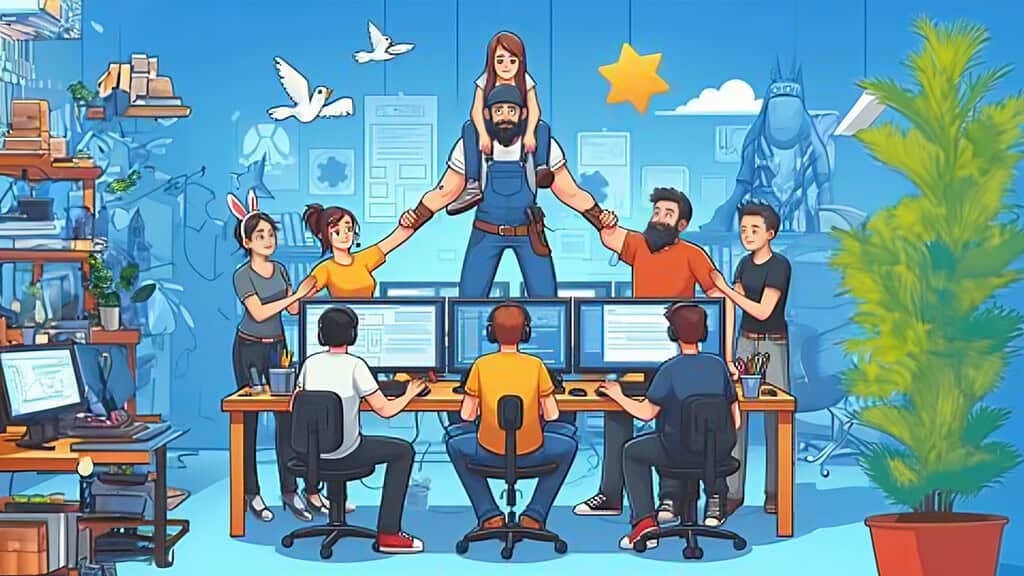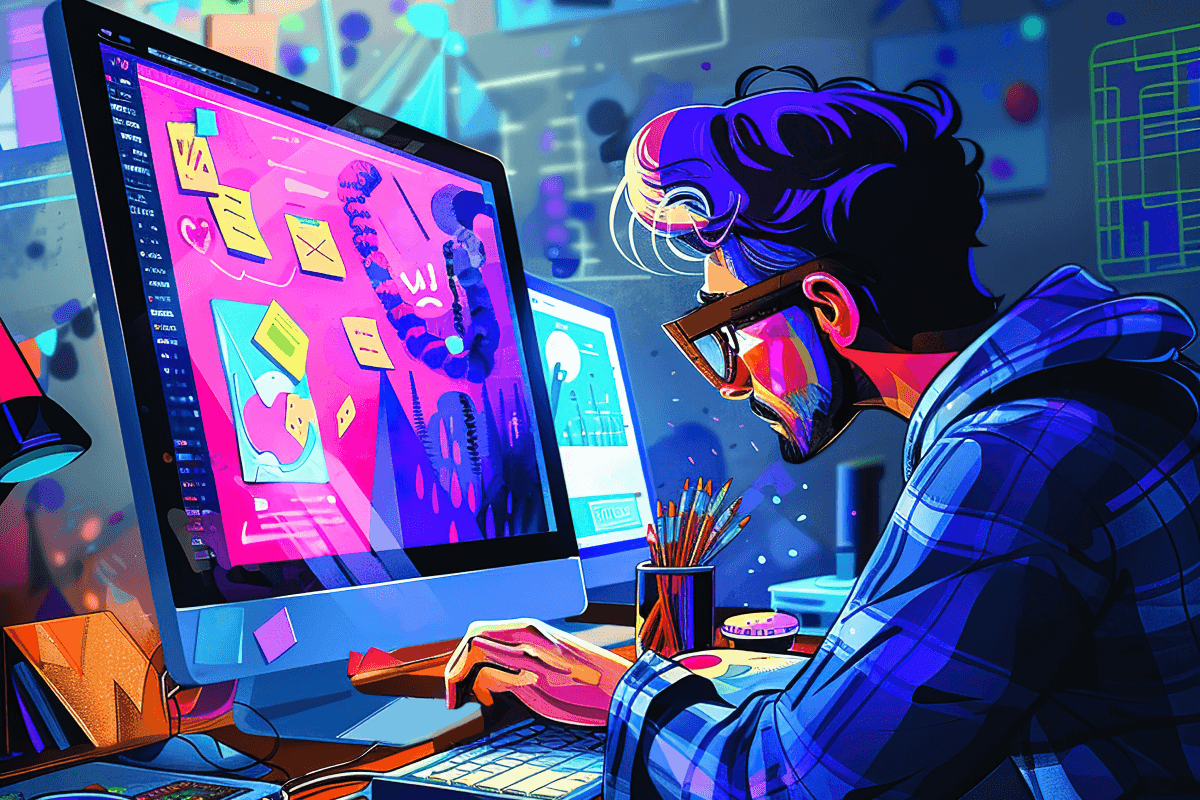Nurturing a Supportive Work Environment: Prioritizing Employee Well-being in Game Development Teams

In the dynamic world of game development, success is not just about creating captivating games; it’s also about cultivating a supportive work environment where employees thrive. At the core of this environment lies a delicate balance of collaboration, communication, and care for employee well-being. Let’s delve into the subtle yet profound impact of various factors on fostering a positive workplace culture in game development teams.
Embracing Collaboration:
Collaboration lies at the heart of successful game development teams. Encouraging developers to work together fosters creativity, enhances problem-solving skills, and ultimately leads to better outcomes. Here are some strategies to promote collaboration
Cross-functional Teams:
Form multidisciplinary teams comprising artists, programmers, designers, and other specialists. This diversity of skills and perspectives encourages holistic thinking and facilitates innovation.
Shared Goals:
Establish clear, shared goals for projects to align team members’ efforts and foster a sense of purpose and unity.
Regular Feedback:
Encourage constructive feedback among team members to facilitate learning and improvement. Constructive criticism should be delivered respectfully and focused on the work, not the individual.
Fostering Open Communication:
Effective communication is the cornerstone of a supportive work environment. When team members feel comfortable expressing their ideas, concerns, and opinions openly, collaboration flourishes, and productivity soars. Here’s how to promote open communication:
Accessible Leadership:
Create avenues for team members to communicate with leadership, whether through regular meetings, suggestion boxes, or anonymous feedback channels. Accessible leaders build trust and make employees feel heard. Regular Check-ins: Schedule regular one-on-one meetings between team members and their supervisors to discuss progress, challenges, and career aspirations. These check-ins provide opportunities for feedback and support. Transparent Communication: Foster transparency by keeping team members informed about company goals, project updates, and changes in direction. Transparency builds trust and reduces uncertainty.
Prioritizing Employee Well-being
In the fast-paced world of game development, it’s easy for employees to burn out if their well-being isn’t prioritized. Nurturing a supportive work environment involves recognizing the importance of work-life balance, mental health, and overall well-being.
Wellness Programs:
Implement wellness initiatives such as mindfulness workshops, yoga classes, or mental health resources to support employees’ physical and mental well-being.
Financial Stability:
In the fast-paced world of game development, it’s easy for employees to become consumed by their work. However, neglecting their well-being can have dire consequences. Timely payment of salaries is not just a financial matter; it’s a reflection of the organization’s commitment to its employees’ welfare. By prioritizing prompt and consistent salary payments, studios demonstrate their respect for their employees’ time, effort, and dedication.
Flexible Schedules:
Offer flexible work hours or remote work options to accommodate employees’ individual needs and preferences. Flexibility empowers employees to manage their time effectively and reduces stress.
Promote Boundaries: Encourage employees to set boundaries between work and personal life to prevent burnout. Avoid expecting or rewarding excessive overtime, and encourage employees to take breaks and vacations.
Cultivate a Positive Culture:
A positive work culture is essential for fostering a supportive environment where employees feel valued, motivated, and empowered to succeed./>
Celebrating Success:
Recognize and celebrate achievements, both big and small, to boost morale and reinforce a culture of appreciation and recognition. Encouraging Creativity: Create opportunities for employees to explore their creativity and pursue passion projects. Encourage experimentation and innovation without fear of failure. Leading by Example: Leadership sets the tone for organizational culture. Lead by example by demonstrating respect, integrity, and empathy in all interactions.
Conclusion
Creating a supportive work environment is not a one-size-fits-all endeavor; it’s a journey that requires continuous effort and attention. By embracing collaboration, fostering open communication, and prioritizing employee well-being, game development studios can lay the foundation for a culture of success, creativity, and fulfillment. In doing so, they not only attract top talent but also inspire individuals to do their best work, pushing the boundaries of what’s possible in the world of gaming.
Similar Articles
-

Mastering 2D and 3D Animation 03-04-2025
The Ultimate Career Boost in Today’s Creative Industry The demand for skilled animators is skyrocketing…
-

The Changing Face of the Animation Industry 02-27-2025
The animation industry has undergone a seismic transformation over the past decade. What was once…
-

Why the Design Industry is the Future? 02-25-2025
A Guide for Creative Students After 12th The 12th grade is a turning point for…
-

The Digital Canvas: Explore Creative Careers Now 02-24-2025
The creative industry is undergoing a massive transformation, driven by advancements in technology and the…